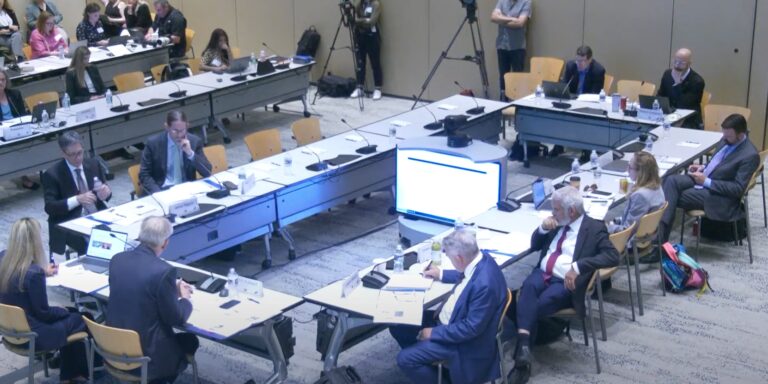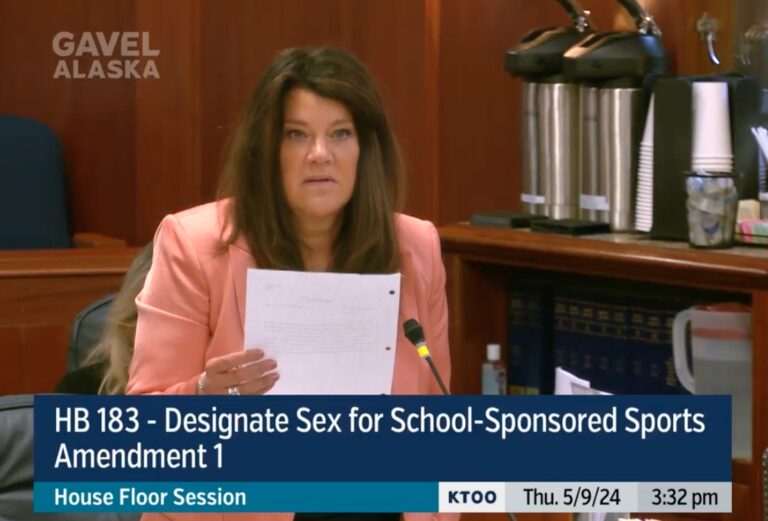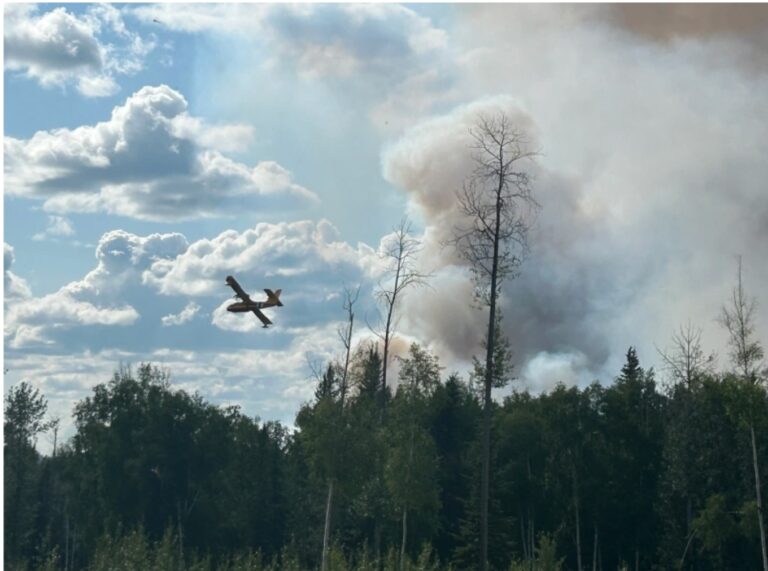By LINDA BOYLE
The new members of the Advisory Committee on Immunization Practices (ACIP) met for two days to make recommendations on influenza and respiratory syncytial virus vaccinations for the 2025-2026 flu season.
In opening Wednesday’s meeting, ACIP chair Martin Kulldorff, Ph.D., stated, “Some media outlets have been very harsh on the new members of this committee, issuing false accusations and making concerted efforts to put scientists in either a pro- or anti-vaccine box. Such labels undermine critical scientific inquiry, and it further feeds the flames of vaccine hesitancy.”
What decisions were made? Here is the bottom line summary:
- RSV vaccination recommendations include clesrovimab for infants under eight months during their first RSV season.
- Flu shots are recommended for individuals aged six months and older, preferring thimerosal-free single-dose formulations.
This caused the mainstream media to be shocked that the “anti-vax” group would recommend a new RSV shot. But bear in mind this shot is a monoclonal antibody vaccine. It is not the mRNA-RSV Moderna had been working on.
Data presented at the meeting found the RSV shot reduced hospitalizations by about 47% in newborns up to 2 months old, the population at highest risk of hospitalization.
There was some concern by committee members that not enough data were available. But Dr. Cody Meissner, professor of pediatrics at Dartmouth’s Geisel School of Medicine and a previous member of ACIP from 2008 to 2012 and current member of ACIP made the following statement:
“This is extremely important that the Vaccine For Children program (VFC) cover this product. It is very important to ensure equity in our country so that all children have access to these monoclonal antibodies. It would not be right, because these are expensive products, that only well-insured children or in families that are well-insured have access to this product. I think we’ve all discussed the fact that this an effective product, and I would strongly encourage everyone to make it available to all children.”
The committee immediately voted for approval. The vote was 5-2. The two who dissented were Dr. Retsef Levia professor of operations management at MIT who has questioned the safety of Covid-19 jabs, and Vicky Pebsworth, a nurse and member of the anti-vaccine National Vaccine Information Center.
Once the Centers for Disease Control and Prevention approves this recommendation, Clesrovimab will be added to the Vaccines for Children Program. This provides for vaccines to children whose parents or guardians may not be able to afford them. About 50% of our children use the VFC program.
The ACIP votes for the flu vaccine were:
- Influenza Vaccines Vote: Recommendations for influenza vaccination for the 2025-26 season: ACIP reaffirms the recommendation for routine annual influenza vaccination of all persons aged 6 months or older who do not have contraindications.
- Thimerosal Containing Influenza Vaccines Vote No. 1: ACIP recommends children 18 years and younger receive seasonal influenza vaccines only in single dose formulations that are free of thimerosal as a preservative.
- Thimerosal Containing Influenza Vaccines Vote No. 2: ACIP recommends pregnant women receive seasonal influenza vaccines only in single dose formulations that are free of thimerosal as a preservative.
- Thimerosal Containing Influenza Vaccines Vote No. 3: ACIP recommends all adults receive seasonal influenza vaccines only in single dose formulations that are free of thimerosal as a preservative.
This caused angst among the mainstream media. There was disagreement among the ACIP and other research as to whether Thimerosal really does cause medical problems. The side that says it can lead to neurotoxicity or autism cited their research. The side that says it does not cited theirs. The naysayer media went off on the repeated mantra that Robert F. Kennedy only picked anti-vaxxers for the ACIP.
I am not sure how bad Thimerosal is, but I do find it interesting it was removed from 96% of pediatric vaccines in 2001. It would seem if there were precautionary reasons to remove it from 96% of pediatric vaccines, it should be removed from that last 4%.
However, Thimerosal is used in multi-dosed bottles as a preservative. Multi-dosed bottles are important in lower income countries as they cost less than single dose.
Dr Joseph Hibbeln, MD, is a psychiatrist and nutritional neuroscientist who worked at Barton Health in South Lake Tahoe, California and member of the ACIP stated, “I wish to note that there is a significant benefit to the use of multi-dose vaccines instead of single dose vaccines, and apparently, there is good data that other preservatives can be used,” Hibbeln said. “So, I hope that the committee will put on the agenda the consideration of multi-use vials rather than single-use vials that have other better preservatives.”
Certainly, we need more research on a preservative that can make the flu vaccines more cost-effective without the fear of illness from the preservative.
Once approved by CDC, these changes will become part of the CDC recommendations. That will ensure insurance companies must pay for these vaccines and each of us can decide if we wish to take this jab for ourselves or give them to our babies.
In the past, medical associations have continued to preach that healthcare professionals should follow the CDC recommendations. However, once the new vaccine advisors stated they would be conducting a review of childhood vaccine schedules that changed. The American Academy of Pediatrics said such a move would “sow distrust in immunizations”. Dr. Sean T. O’Leary, M.D., M.P.H., FAAP, chair of the AAP Committee on Infectious Diseases also stated the AAP liaisons to ACIP did not participate in the meeting “because we view it as illegitimate.”
It appears as if the American Academy of Pediatrics is more interested in the political aspects than the healthcare aspects of childhood vaccinations.
I’m unsure how this can lead to more distrust when the Covid years really opened our eyes to how decisions were made and how the truth about side-effects were hidden from us. Public trust in the healthcare industry was already at an old time low.
I agree with Kulldorff. By putting people into pro or anti-vax groups, it undermines scientific discovery and leads to vaccine hesitancy. By “dissing” the new ACIP committee even before their first meeting only leads to more distrust. Instead of listening to how and why a decision is made, automatically telling the other side they are wrong does not build trust.
Nor does it convince people you are “right.”
We are better than that.
Linda Boyle, RN, MSN, DM, was formerly the chief nurse for the 3rd Medical Group, JBER, and was the interim director of the Alaska VA. Most recently, she served as Director for Central Alabama VA Healthcare System. She is the director of the Alaska Covid Alliance/Alaskans 4 Personal Freedom.









